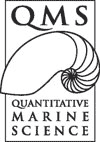
Stochastic computation for the analysis of ecological and epidemiology data
Isaac Newton Institute for Mathematical Sciences, Cambridge, UK, 20-24th November 2006
This 5 day workshop gathered 50 people including leading researchers in the fields of statistics and epidemiology. The format of the workshop was similar to a conference with 4 to 5 talks per day (about 60 min each) followed by 10-15 min of questions - and sometimes animated debates...
Presentations ranged from introductory talks about specific stochastic methods to complex examples of applications. About 60% of the workshop was dedicated to epidemiological questions, mainly modeling the transmission mode and spread of various diseases. Although this is not the topic of my research, it was interesting to see how Bayesian methods were applied and the range of questions they can answer.
Of particular interest to me were the rest of the presentations which focused on ecological questions, as some were directly relevant to aspects of my project on the population dynamics of octopus. The talks illustrated how Bayesian methods can be used for various purposes such as evaluating the impact of environmental factors on population dynamics, estimating parameters for birth/death models (eg juvenile survival) and dealing with missing values in datasets.
Overall, I gained a better understanding of the possibilities and limitations of stochastic methods applied to biology and got to meet some interesting people at the forefront of this field of investigation.
Most of the workshop presentations are available from the Stochastic Computation for the Analysis of Ecological and Epidemiological Data page.
Some other related workshop reports from the same institute can be found at the Stochastic Computation in the Biological Sciences page.
On the side, here is some interesting info that came out during discussions about everybody's favourite MCMC software WinBUGS:
Two parallel versions of WinBUGS are actually being developed:
WinBUGS that most people know (current version 1.4.1) which currently only operates under Windows
and OpenBUGS (current version 2.2.0) which is an open source software put out by one of the guy from the original WinBUGS team. Some potential advantages of this version is that OpenBUGS works with Windows, Linux and -R (under Windows only)
The two versions differ slightly in how they operate (eg OpenBUGS uses more updaters) and in what they can do (eg WinBUGS can do reversible jumps).